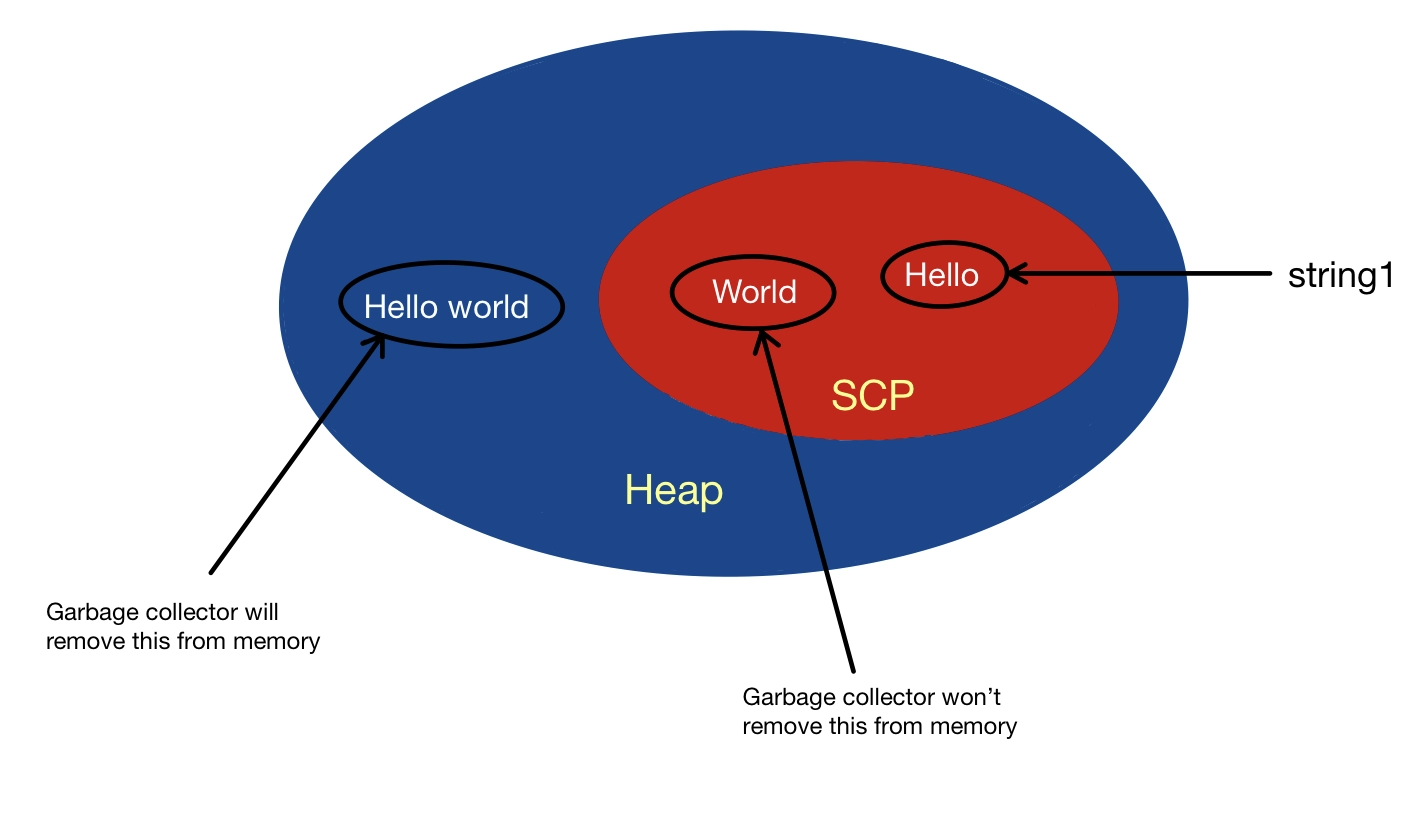Why Are Strings Immutable in Java? Insights right into Memory Effectiveness
What Is Immutable Strings and Just How It Works
In the realm of programs, comprehending the idea of immutable strings is extremely important for developing protected and robust applications. Immutable strings describe strings that can not be changed after they are developed, making certain data integrity and predictability within the code. This fundamental concept plays an essential function in numerous programs languages and offers a distinct strategy to handling data. By discovering the intricacies of exactly how immutable strings work, one can discover a world of advantages and possibilities that can boost the quality and performance of software advancement.
The Essentials of Unalterable Strings
Immutable strings, as a basic idea in shows, are character sequences that can not be transformed when they are developed. This suggests that when a string is assigned a worth, that value can not be modified. In languages like Python and Java, strings are unalterable items, leading to numerous implications in terms of memory monitoring and information honesty.
Among the crucial advantages of immutable strings is that they give a complacency in information control. Given that the material of an immutable string can not be customized, it makes sure that the initial data remains undamaged, minimizing the risk of unplanned changes during program implementation (Why are strings immutable in Java?). This home additionally streamlines debugging processes, as developers can rely on that once a string is defined, its value will not be inadvertently changed
When a brand-new string is developed based on an existing one, rather than customizing the initial string, the new worth is saved individually. On the whole, understanding the essentials of immutable strings is crucial for understanding programming principles and optimizing code effectiveness.
Benefits of Immutable Strings
Building upon the safety and effectiveness benefits of immutable strings, their benefits encompass enhancing code integrity and streamlining concurrent programs jobs. By being immutable, strings can not be modified after creation, which eliminates the threat of unplanned changes in the data they store. This fundamental immutability makes sure that when a string is created, its value continues to be continuous throughout the program's execution, reducing the possibilities of insects triggered by unanticipated modifications.
Additionally, unalterable strings add to code dependability by making it simpler to reason regarding the state of a program. Given that strings can not be changed, designers can trust that a string will always hold the very same value, streamlining debugging and upkeep efforts. This predictability brings about more stable and dependable codebases.

Application in Shows Languages
Within numerous programming languages, the incorporation of unalterable strings is an essential aspect that impacts how information is taken care of and manipulated within code frameworks. The implementation of immutable strings varies throughout different programs languages, with each language providing its own devices to sustain this idea.

On the other hand, languages like C and C++ do not have built-in assistance for immutable strings. Programmers in these languages must by hand my website apply immutability by imposing guidelines within their code to stop straight modifications to string objects.
Finest Practices for Working With Immutable Strings
When handling unalterable strings in programming languages like Java and Python, adhering to best practices makes certain efficient and safe data control. One of the crucial ideal techniques is to utilize StringBuilder or StringBuffer rather than straight manipulating strings, especially when handling extensive concatenation procedures. These classes offer mutable options for string control, aiding to prevent unneeded memory allocations and boosting efficiency.
In addition, when functioning with delicate information such as passwords or API keys, it is essential to stay clear of keeping them as ordinary message in unalterable strings. Using safe and secure storage devices like char varieties or specialized libraries for taking care of sensitive details assists mitigate security risks associated with unalterable strings.
Real-world Applications and Instances
Checking out functional applications of immutable strings in various markets discloses their considerable effect on information integrity and system integrity. In the healthcare field, immutable strings play an essential role in making sure the protection and confidentiality of person information. By preventing unapproved adjustments to delicate information such as clinical documents and prescriptions, unalterable strings assist keep conformity with strict privacy guidelines like HIPAA.
Banks likewise gain from the unalterable nature of strings to boost the security of consumer information and deal records. Immutable strings assist protect against fraud and unapproved changes to monetary info, supplying a robust protection versus cyber risks and ensuring the trust fund and self-confidence of customers.

Conclusion
Finally, immutable strings are dealt with and stable series of characters that use benefits such as thread safety and enhanced performance in programming. They are implemented in different shows languages to make certain data stability and safety and security. Best techniques for working with immutable strings consist of avoiding direct alterations and making use of methods that return new string items. Real-world applications of immutable strings include information encryption, caching, and string manipulation jobs.
Immutable strings refer to strings that can not be modified after they are produced, ensuring data integrity and predictability within the code. When a brand-new string is created based on an existing one, rather than modifying the initial string, the new value is stored separately.In languages like Java and Python, strings are unalterable by default, indicating that as soon as a string object is created, its value can not be transformed - Why are strings immutable in Java?. Finest practices for functioning with unalterable strings consist of preventing direct adjustments and utilizing techniques that return brand-new string things. Real-world applications of unalterable strings include data encryption, caching, and string adjustment tasks